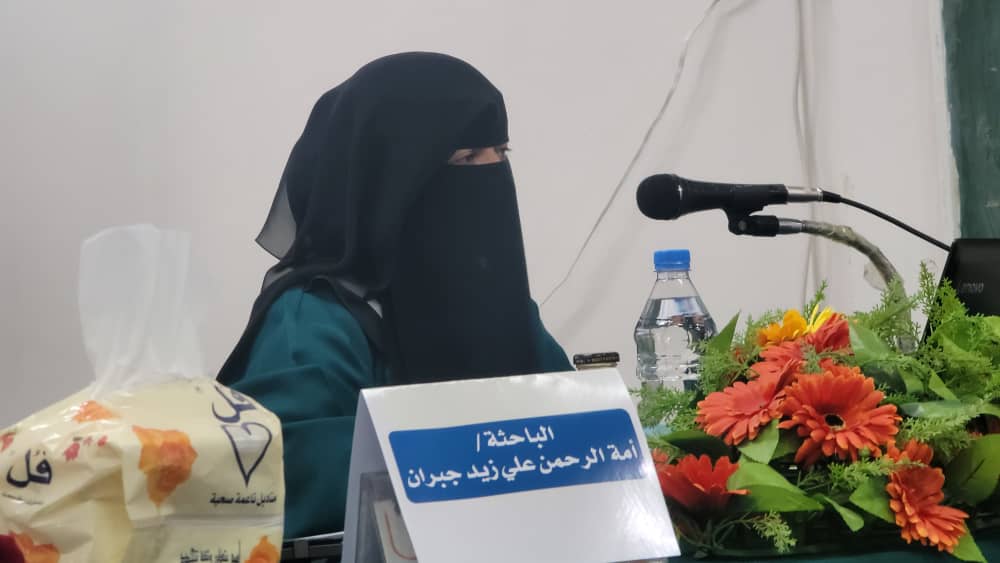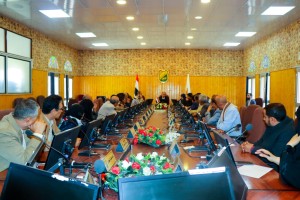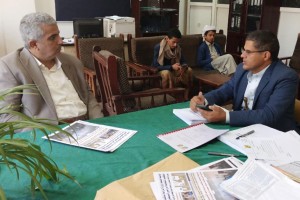Master’s degree for researcher Amat Al-Rahman Jibran from the Department of Food Sciences and Nutrition, College of Agriculture
- Categories Letters and Promotions - Graduate Studies, news, Regulations - Postgraduate Studies
- Date January 9, 2025

Researcher Amat Al-Rahman Ali Zaid Jibran obtained a master’s degree with distinction, specialization: Food Sciences and Nutrition, on Wednesday 8-7-1446 AH – corresponding to 8/1/2025 AD for her thesis entitled “Evaluation of the nutritional status of breast cancer patients in the Republic of Yemen on a sample of females visiting the National Center for Oncology Treatment in the Capital Secretariat – Sana’a”.
The discussion and judging committee consisted of professors:
Prof. Dr. Adel Ali Omar – External examiner – Dhamar University – Chairman.
Prof. Dr. Adnan Abdo Muhammad Al-Qabati – Internal examiner – Sana’a University – Member
Assistant Professor Dr. Khaled Nasser Nasser Hamid – Thesis Supervisor – Sana’a University – Member.
The study aimed to assess the nutritional status and identify the importance of the variables affecting it, which highlights the importance of assessing the nutritional status, and providing early, intensive and reasonable nutritional intervention that is consistent with the health status of breast cancer patients, leading to successful disease management and treatment governance.
The study came out with a number of results and recommendations, the most important of which are:
First: Results:
The results showed that 42% of the patients were in the age group of 31-40 years, and more than half of the sample 61% had a low income level, and the majority of them 72% were married, 85% were housewives.
The results revealed that a high percentage of the patients were receiving strong family support.
The study showed that the percentage of those suffering from malnutrition was 64% (25.5% were obese, 33% were overweight, and 5.5% were underweight).
Second: Recommendations:
The study recommends that cancer treatment centers should evaluate the nutritional status of breast cancer patients upon diagnosis and when drawing up treatment plans for the tumor, with the availability of an integrated team to care for cancer patients who are qualified and trained and can carry out nutritional status assessment procedures, identify nutritional problems, detect cases of malnutrition early and identify patients who need nutritional intervention.
The discussion was attended by a number of academics, researchers, interested students, and a number of the researcher’s colleagues, friends and family members.
Discover more from Sana'a University
Subscribe to get the latest posts sent to your email.






